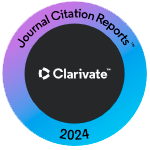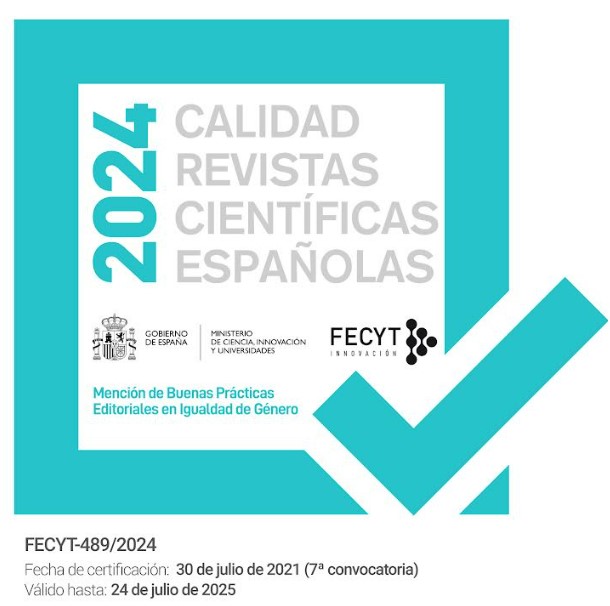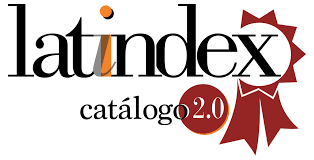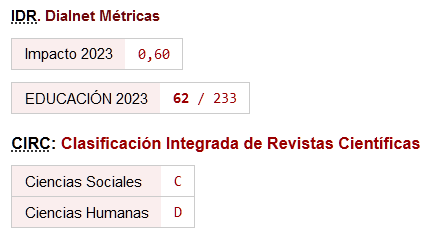Perspectivas de los Graduados sobre la Integración de la IA
Implicaciones para el desarrollo de habilidades y la preparación profesional
DOI:
https://doi.org/10.46661/ijeri.10651Palabras clave:
Inteligencia artificial, estudiantes de posgrado y pregrado, universidad pública y privada, Competencias, empoderamientoResumen
Este estudio tiene como objetivo explorar la importancia de la inteligencia artificial (IA) para los estudiantes próximos a graduarse y su impacto en el desarrollo de habilidades futuras. Mediante una encuesta dirigida a estudiantes de licenciatura y maestría de diversas facultades en universidades públicas y privadas de Arabia Saudita, se recopilaron 465 respuestas a partir de 500 cuestionarios distribuidos en diferentes regiones.Se utilizó una escala Likert de 5 puntos para evaluar nueve dimensiones, que incluyen la influencia de la IA en las habilidades futuras, su integración en la educación, la preparación estudiantil, la exposición al mundo real, la exploración, consideraciones éticas, perspectivas globales, adaptación curricular y la comunicación y colaboración. Para evaluar el objetivo de la investigación, se emplearon una prueba t de una muestra y coeficientes de correlación a través de las diferentes dimensiones. Este trabajo contribuye mediante un análisis exhaustivo del impacto de la inteligencia artificial (IA) en los estudiantes que se gradúan en Arabia Saudita. A través de una metodología de encuesta rigurosa, se esclarecen las percepciones de los estudiantes respecto al impacto de la IA en sus habilidades futuras y en su educación. Los hallazgos destacan la actitud positiva hacia la IA, reconociendo su potencial para mejorar la resolución de problemas, el pensamiento crítico y la adaptabilidad. Además, se resalta la importancia de integrar la IA en la educación para preparar a los estudiantes frente a las oportunidades laborales en una sociedad tecnológicamente avanzada. Los estudiantes consideran que la IA puede proporcionarles oportunidades para adquirir experiencia práctica y exposición a industrias impulsadas por la IA, lo cual puede mejorar su aprendizaje y sus perspectivas profesionales futuras. Asimismo, expresan un fuerte interés en explorar proyectos y actividades relacionados con la IA para desarrollar sus habilidades futuras, especialmente en análisis e interpretación de datos, áreas de alta demanda en el mercado laboral.
Descargas
Citas
Abdul Rahman, A., Santosa, P. I., Ilwandri, I., Suharyat, S., & Suhaimi, M. (2023). The Effectiveness of AI Based Blended Learning on Student Scientific Literacy: Meta-analysis. International Scientific Journals of Social, Education, Humanities, 2(1), 2-3. https://doi.org/10.56910/literacy.v2i1.542
Artificial Intelligence University of Florida, (2024), retrieved from https://ai.ufl.edu/about/
Cardona, M. A., Rodríguez, R. J., & Ishmael, K. (2023). Artificial Intelligence and the Future of Teaching and Learning, insights and recommendations. https://www2.ed.gov/documents/ai-report/ai-report.pdf
Capitol Technology University (2023). The Ethical Considerations of Artificial Intelligence. https://www.captechu.edu/blog/ethical-considerations-of-artificial-intelligence
Chan, C.K.Y., & Hu, W. (2023). Students’ voices on generative AI: perceptions, benefits, and challenges in higher education. International Journal of Educational Technology in Higher Education, 20 (43). https://doi.org/10.1186/s41239-023-00411-8
Chen, H., Jensen, B., Albert, E., Gupta, N., & Lee, S. (2023). Artificial Intelligence (AI) Student Assistants in the Classroom: Designing Chatbots to Support Student Success. Springer Link, 31(4), 1-3. https://link.springer.com/article/10.1007/s10796-022-10291-4
Christian, J., Park, D., Paul, H., Yi, M., Eliot, L., & Siegel, M. (2021). Medical Student Perspectives on the Impact of Artificial Intelligence on the Practice of Medicine. Current Problems in Diagnostic Radiology, 50(5), 614-619. https://www.sciencedirect.com/science/article/abs/pii/S0363018820301249
Crompton, H., & Burke, D. (2023). Artificial intelligence in higher education: the state of the field. International Journal of Educational Technology in Higher Education, 20(22), 1-3. https://doi.org/10.1186/s41239-023-00392-8
Chen, M. N. (July 20, 2023). AI Is Leading College Graduates to Question Their Job Readiness, According To New Survey. https://www.forbes.com/sites/michaeltnietzel/2023/07/20/ai-is-leading-college-graduates-to-question-their-job-readiness-according-to-new-survey/
Future skills. (2024). Future Skills: The Kingston Approach Kingston. University London https://www.kingston.ac.uk/aboutkingstonuniversity/future-skills/
Global View on AI. (2023). How people across the world feel about artificial intelligence and expect It will impact their life, A 31-country Global Advisor survey. Ipsos. https://www.ipsos.com/sites/default/files/ct/news/documents/2023-07/Ipsos%20Global%20AI%202023%20Report-WEB_0.pdf
Gocen, S., & Aydemir, M. (2020). Artificial Intelligence in Education and Schools. Research Gate, 12(1), 1-14. https://doi.org/10.2478/rem-2020-0003
Grady college of Journalism and mass communication (2023). Cross-institutional collaboration sparks student research on AI, crisis communication. https://grady.uga.edu/news/cross-institutional-collaboration-sparks-student-research-on-ai-crisis-communication/
Grassini, S. (2023). Shaping the Future of Education: Exploring the Potential and Consequences of AI and ChatGPT in Educational Settings. Education Sciences, 13(7),1-9, https://doi.org/10.3390/educsci13070692
Hamd, M., Elshami, W., AlKawasd, A., Aljuaide, A., & Abuzaid, O. (2023). A closer look at the current knowledge and prospects of artificial intelligence integration in dentistry practice: A cross-sectional study. Heliyon, 9(12), e07368. https://doi.org/10.1016/j.heliyon.2023.e07368
Hohenstein, J., Kizilcec, R. F., DiFranzo, D., Aghajari, S., Mieczkowski, H., Levy, O., Naaman, M., Hancock, J. T., & Jung, J. (2023). Artificial intelligence in communication impacts language and social relationships. Scientific Reports, 13(1), 1-9. https://doi.org/10.1038/s41598-023-30938-9
Holstein, K., McLaren, B. M., & Aleven, V. (2018). Student Learning Benefits of a Mixed-Reality Teacher Awareness Tool in AI-Enhanced Classrooms. In Proceedings of the International Conference on Artificial Intelligence in Education (pp. 12-24). Springer. https://doi.org/10.1007/978-3-319-93843-1_12
Huang, A. Y. Q., Lu, O. H. T., & Yang, S. J. H. (2023). Effects of artificial intelligence–enabled personalized recommendations on learners’ learning engagement, motivation, and outcomes in a flipped classroom. Computers & Education, 194, 104684. https://doi.org/10.1016/j.compedu.2023.104684
Hunter, G. (2023). AI-Ready or Not? North Texas universities are gearing up for the AI revolution, readying students for the jobs of tomorrow. https://dallasinnovates.com/ai-ready-or-not/
Inside Higher Ed (2023). How AI Is Shaping the Future of Higher Ed. https://www.insidehighered.com/views/2023/03/22/how-ai-shaping-future-higher-ed-opinion
Kim.N., & Kim., M. (2022). Teacher’s Perceptions of Using an Artificial Intelligence-Based Educational Tool for Scientific Writing. Frontiers, 7(1), 1-8, https://doi.org/10.3389/feduc.2022.755914
Murugesan, U., Subramanian, P., Srivastava, S., & Dwivedi, A. (2023). A study of Artificial Intelligence impacts on Human Resource Digitalization in Industry 4.0. Decision Analytics Journal, 7, 100249. https://doi.org/10.1016/j.dajour.2023.100249
Wang, G., Liu, Y., Pang, Y., Chee Tan, E., Lei, Z., Wallace, J., & Li, Y. (2023). What matters in AI-supported learning: A study of human-AI interactions in language learning using cluster analysis and epistemic network analysis. Computers & Education, 194(11), 2-5. https://doi.org/10.1016/j.compedu.2022.104684
NASPA (2024). The Future of Higher Education – The Rise of AI and ChatGPT on Your Campus, Student affairs Administrators in Higher education. https://www.naspa.org/blog/the-future-of-higher-education-the-rise-of-ai-and-chatgpt-on-your-campus
Neha, K. (2020). Role of Artificial Intelligence in Education. Alochana Chakra Journal, 9(9), 305-309.
Nguyen, T. H., Ngan Ngo, H., Hong, H. T. T., Dang, T. T., & P. Nguyen. (2023). Ethical principles for artificial intelligence in education. Education and Information Technologies, 28, 4221-4241. https://doi.org/10.1007/s10639-022-11316-w
Ouyang, F., Xu, J., & Cukurova, M. (2023). An artificial intelligence-driven learning analytics method to examine the collaborative problem-solving process from the complex adaptive systems perspective. Educational Technology Research and Development, 18, 39–66. https://doi.org/10.1007/s11412-023-09387-z
SDSU. (2023). Fowler Offers_Students_New_AI-Based Tools to Support Career-Readiness. https://business.sdsu.edu/news/2023/10/ai-career-readiness
Southworth, J., & Migliaccio, K. (2023). Developing Career-Ready Graduates: The Importance of AI Literacy Across the Curriculum. https://media-and-learning.eu/type/featured-articles/developing-career-ready-graduates-the-importance-of-ai-literacy-across-the-curriculum/
Syed, W., Al-Rawi, M. B.A. (2023). Assessment of Awareness, Perceptions, and Opinions towards Artificial Intelligence among Healthcare Students. Medicina, 59(5), 2-10. https://doi.org/10.3390/medicina59050828
TechTarget. (2024). Top degree programs for studying artificial intelligence. https://www.techtarget.com/whatis/feature/The-top-20-programs-for-studying-artificial-intelligence
Vlasceanu, J. J (2023). AI’s Transformation of Career Preparation. https://www.aacsb.edu/insights/articles/2023/07/ais-transformation-of-career-preparation
Winkler, C. (2023). AI Goes Rural enhances student and teacher experiences in rural Indiana. https://education.indiana.edu/news/2023/jul-dec/2023-07-11-ai-goes-rural-enhances-student-and-teacher-experiences-in-rural-indiana.html
Zhai, X., Chu, X., Chai, C. S., Jong, M. S. Y., Istenic, A., Spector, M., Liu, J.-B., Yuan, J., & Li, Y. (2021). A review of artificial intelligence (AI) in education from 2010 to 2020. Complexity, 1-18. https://doi.org/10.1155/2021/8812542
Zhang, H., Cheng, K., Lee, J., Ali, S., DiPaola, S., & Breazeal, C. (2023). Integrating ethics and career futures with technical learning to promote AI literacy for middle school students: An exploratory study. Educational Technology Research and Development, 31(4), 1-7. https://doi.org/10.1007/s40593-022-00293-3
Descargas
Archivos adicionales
Publicado
Cómo citar
Número
Sección
Licencia
Derechos de autor 2024 Musrrat Parveen, Yusra Mohammed Alkudsi

Esta obra está bajo una licencia internacional Creative Commons Atribución-NoComercial-SinDerivadas 4.0.












